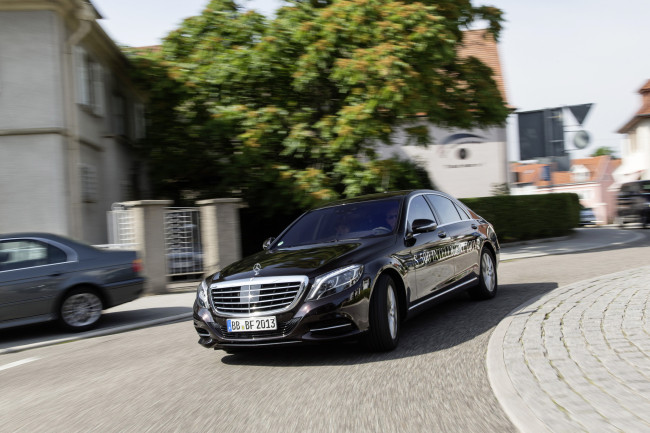LG Electronics said Thursday that it would partner with Mercedes-Benz to develop a key auto component for the global premium automaker’s next-generation autonomous cars.
South Korea’s second-largest consumer electronics company will partner with Mercedes-Benz to develop a stereo camera system, which works like a “human eye” with the capability to detect objects on the road ahead, LG noted.
 |
| Mercedes-Benz test-drives its autonomous S500 Intelligent Drive experimental vehicle in Germany. LG Electronics plans to develop stereo camera systems for Mercedes-Benz’s future driverless cars. (Mercedes-Benz) |
The system will use computational stereoscopic vision and sensors to enable driverless cars to gather traffic information, identify hazards such as accidents and activate the automobile’s safety systems.
For instance, when the car spots a pedestrian on the road through the stereo camera system, it will autonomously hit the brake if the driver has not yet responded.
The system will enable the cars to cruise in their appropriate lanes, and should human drivers fall asleep and veer out of their lanes, it will send a warning signal and assist them to get back into their driving lanes.
LG Electronics added that the stereo camera system would read speed limit signs and keep vehicles from exceeding the regulatory speed limit.
With governments around the world demanding stronger automotive safety measures to reduce traffic accidents and casualties, LG said that it would seek to provide its technology in the growing markets for high-tech auto parts.
“We will move to develop premium components suitable for global premium automakers based on our cumulative knowledge in developing world-class visual recognition technology thanks to our strength in IT and consumer electronics,” said Lee Woo-jong, president and CEO of LG Electronics’ vehicle components division.
Mercedes-Benz, which tested its driverless vehicle last year in Germany, is one of many global auto giants rapidly seeking to develop next-generation autonomous cars as four U.S. states, including Florida and California, have passed legislation to allow driverless cars on the road.
By Park Hyong-ki (hkp@heraldcorp.com)

